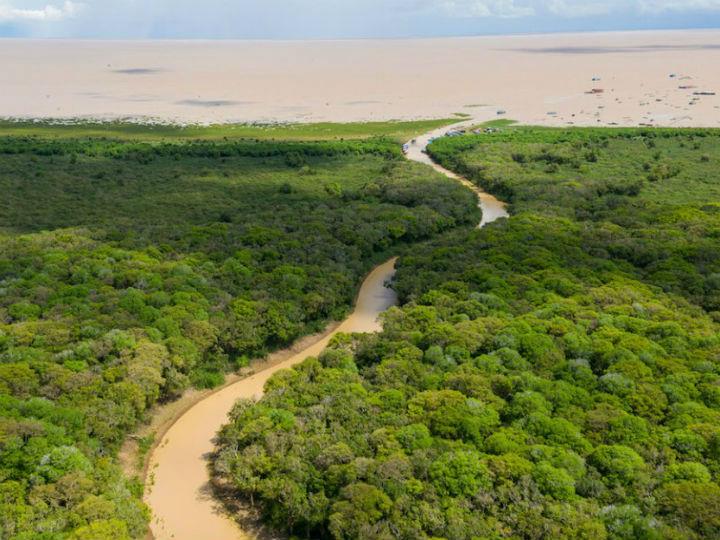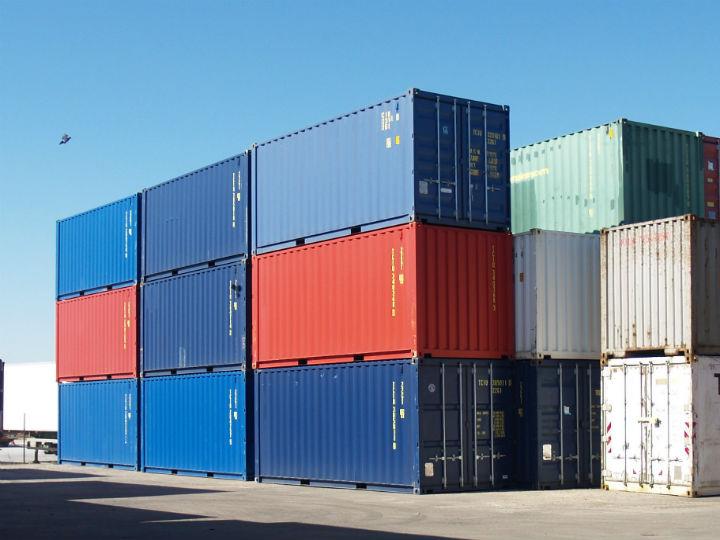
This is why we need to talk about responsible AI
By: EBR | Thursday, November 12, 2020
Bias in AI and other negative consequences of the technology have become common media fodder

4 lessons from nature to build a circular economy
By: EBR | Tuesday, November 10, 2020
The circular economy is one of the few disruptive concepts with universal appeal - with business leaders, investors, activists, economists and environmentalists

Here’s a credible plan to soften Covid’s catastrophic job losses
By: EBR | Tuesday, November 10, 2020
Let’s be clear about the corona crisis; Welcome as the news is of a vaccine, Europe is already in the grip of a recession so serious it risks turning into a depression

What nature can do for the climate in a post-COVID world
By: EBR | Tuesday, November 10, 2020
It was expected that 2020 would set the agenda for environmental action for the next decade

Emissions from energy sector likely to rebound from COVID-19, Capgemini warns
By: EBR | Thursday, November 5, 2020
Emissions from the global energy sector will be 7-8% lower in 2020 than in 2019, but most nations are still failing to align their energy generation and consumption patterns with long-term climate targets

Oil and gas have been hit dramatically by COVID, speeding the transition out of them
By: EBR | Thursday, November 5, 2020
COVID-19 has had a wide-ranging impact on oil and gas, with estimates showing that oil demand could peak as early as 2025, rather than 2040, and that gas will be a much shorter bridge into renewables

Offshore wind energy to double by 2025
By: EBR | Wednesday, November 4, 2020
Wind and solar energy are quickly becoming one of the cheapest forms of energy across the world

These 6 skills cannot be replicated by artificial intelligence
By: EBR | Wednesday, November 4, 2020
The COVID-19 crisis is going to accelerate a number of changes and transformations in human society

Five key climate metrics for the oil and gas sector’s next five years
By: EBR | Tuesday, November 3, 2020
It’s an unforgiving time to navigate the choppy waters of oil and gas investment. Demand destruction from the COVID-19 pandemic has eroded earnings, dented dividends and sent share prices plummeting

Industrial clusters are critical to getting to net-zero. Here’s why
By: EBR | Monday, November 2, 2020
Industrial clusters have a big role to play in the clean energy transition. But what are they? And how can they help?

How to get private capital to protect nature – without greenwashing
By: EBR | Thursday, October 29, 2020
“Innovative finance” is the newest buzzword used to find ways to channel money – especially private money – to nature-based solutions

Here’s how we can reduce emissions from the shipping industry
By: EBR | Monday, October 26, 2020
This month, delegates from governments around the world are meeting (virtually) for a crucial, albeit under-the-radar, climate summit at the United Nations International Maritime Organization (IMO)

The Post-Pandemic Crisis: What Happens Next?
By: EBR | Monday, October 26, 2020
The failure of multilateral strategic decision-making in these COVID times has been led by the Trump Administration and its bizarre attacks on international institutions

Transport leaders go in search of safe data spaces
By: EBR | Monday, October 26, 2020
The coronavirus is likely to accelerate transport’s shift towards digitalization and help the sector decrease both its environmental footprint and its costs

IMF: How to ensure an inclusive recovery in the Middle East and Central Asia
By: EBR | Friday, October 23, 2020
Countries in the Middle East and Central Asia face with COVID-19 a public health emergency unlike any seen in our lifetime, along with an unprecedented economic downturn

Over half Europe’s small firms fear for survival, survey finds
By: EBR | Thursday, October 22, 2020
Over half the small and medium-sized companies which together provide jobs for two-thirds of European workers fear for their survival in the coming 12 months, according to a survey released by management consultancy McKinsey

Fixing plastic collection seen as vital to success of chemical recycling
By: EBR | Wednesday, October 21, 2020
Two billion people worldwide do not have access to proper waste collection services, leading to ever-growing plastic pollution in oceans and waterways, particularly in the global south

New research shows the Atlantic Ocean just had its hottest decade in 3000 years
By: EBR | Friday, October 16, 2020
This past decade has been the Atlantic Ocean’s warmest in nearly three full millennia

The new lens that can unlock the net-zero economy
By: EBR | Thursday, October 15, 2020
The world today is facing a series of convergent global emergencies linked to the economy, the environment and society

Cars, planes, trains: where do transport CO2 emissions come from?
By: EBR | Wednesday, October 14, 2020
Transport accounts for around one-fifth of global carbon dioxide (CO2) emissions [24% if we only consider CO2 emissions from energy]



 By: N. Peter Kramer
By: N. Peter Kramer

